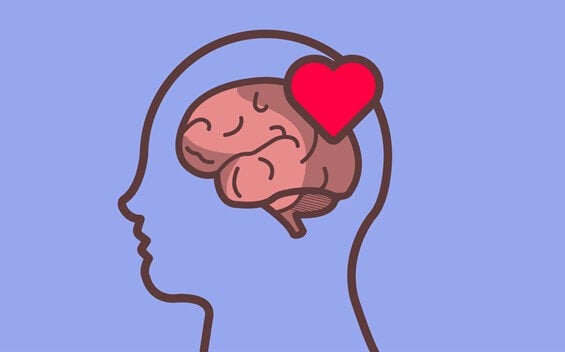According to William James (1842-1910), emotions are the result of evaluating changes in the body that occur when the person receives some stimulus or is in a specific situation, so emotion would not be possible without the production or perception of these changes. , which would be linked in particular to the sympathetic nervous system, however, Magda B. Arnold (1903-2002) contributed a different vision of this phenomenon through the concept of emotional valuation or appreciation.
Arnold suggested that emotion does not follow physical change, but that a direct assessment of whether the object or situation affects us in one way or another is necessary; such an assessment would produce a sense of attraction or aversion, resulting in the approach or elimination of the object or situation. The sequence would be: perception?evaluation?emotion. Let’s go further.
According to Magda B. Arnold, emotions depend on our assessments of objects and situations.
Magda B. Arnold highlighted four fundamental aspects when evaluating a situation, these four points are, even today, of great relevance to understand the emotional evaluation in our life.
To perceive an object means to know what the object I perceive is, to evaluate it is to put it in contact with me and, in this evaluation, we tend to categorize it into two categories: pleasant or unpleasant.
If one day we encounter a roaring lion in the middle of the street we will rate it as something unpleasant and it will scare us, if we see it in a zoo (without being dangerous), we can call it a pleasant experience.
Emotional assessment implies not only that something is rewarding or aversive, but also making judgments about the situation or object, these judgments have as main characteristics to be immediate, automatic, direct and non-reflective.
When we find the lion in the middle of the street, we will almost certainly be running. This survival reaction was caused by fear, an immediate, direct and automatic emotion, that is, we act without thinking twice. We did not stop to think about the consequences of seeing a lion in front of us in the street, since that would mean wasting time. Very valuable time, as we may end up being your food.
At the same time, because they are not thinking judgments, they involve an answer equal to or similar to the previous one, but instead of fear we put a happy situation, what happens to many people when they go through a selection process?Do you see a loved one after a long time?We mourn with joy. And we do it without intellectual or thoughtful mental treatment; implies that we do it spontaneously.
When we evaluate an object or situation as pleasant or unpleasant, we initiate a tendency to action that we feel as an emotion associated with bodily changes and that can lead to a specific action, that is, we are beginning to feel physiological changes that take us when we are angry, not only feel heat and agitation in our breathing, but we may also want to knock on a door or throw an object to the ground.
These two variables trigger two behaviors. When we evaluate something as pleasant, we tend to approach, physically or emotionally, on the other hand, if we consider something unpleasant, our behavior will be rejection and detachment, so our emotional assessment determines our behavior in relation to what we evaluate.
According to Magda B. Arnold, when physiological states are very active and are not followed by action, we can feel great discomfort and frustration. The author argues that we act first and then think about the object we perceive and that triggered the action.
We often think that everything will remain the same, usually when we meet a person, we think that they will always behave the same way or that our loved ones will always be there.
We generally attribute consistency to everything around us without almost any possibility of change, however, this is not the case. At this stage, the author aims to highlight the contrast between our expectations regarding reality and what is really happening.
The belief that everything will remain the same leads to suffering. We also believe that others will act with us as they have so far, and that may change.
Magda B. Arnold stresses the importance of knowing the concept of coherence so that the changes that occur in our lives do not cause great discomfort.
Magda B. Arnold was undoubtedly an influential figure in psychology and, in particular, in the field of emotions, his work has allowed Richard Lazarus to develop one of the most common theories in the scientific community about cognitive evaluation, stress and emotion.
Finally, it is important to note that there are not only renowned men in the discipline, but also the presence of great women who have brought fundamental knowledge for the development of different theories.

